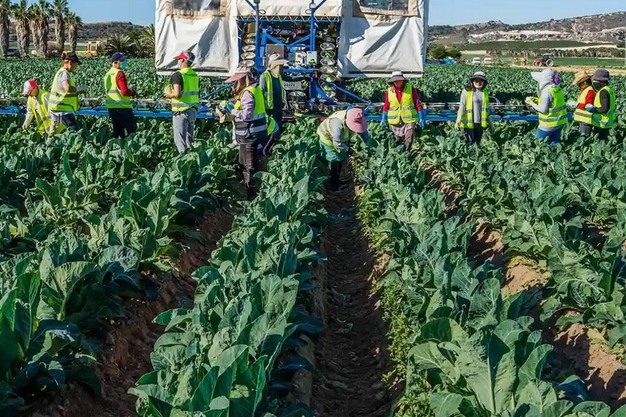The mild winter weather in Murcia has accelerated crop growth in almost all vegetable plantations. As a result, the supply of broccoli and cauliflower has so far exceeded the demand, and prices continue to suffer. Generally, passing on the rise in costs to the final prices remains the biggest challenge, amidst ongoing uncertainty about water availability.
"Following the gap left by the French region of Brittany until the end of December and beginning of January, and the scarcer production in Murcia due to a reduction of around 20% in the acreage, the supply started growing due to the heat, until it exceeded the demand," says Jesús Pérez, commercial director of Verdimed. "This overproduction has been marketed through promotions by supermarkets, which has led to prices being very low."

In the case of broccoli, a higher supply and low prices have also been reported in recent weeks, even though the acreage has been reduced by about 15%. "We plan the planting of varieties according to their usual production cycles, but temperatures are higher than usual," says Jesús Pérez.
According to Verdimed's commercial director, while the constantly increasing production costs for products like broccoli and cauliflower are harder to pass on, there's more understanding from the major European distribution chains for other products, like spinach – one of the most important for this company – as its production is highly scheduled and leaves little room for speculation.
"Passing on the rising costs to the final prices has generally been our main challenge this campaign. Regarding governmental measures such as the proposed agri-food contract law, it's worth noting that this sector is highly export-oriented, so that won't have much use at the European level. Also, it prolongs bureaucratic procedures; a similar issue to that caused by the digital field notebook. A large number of producers are not ready for this and there's a lot of helplessness on their part," says Jesús Pérez.
Drought and water scarcity are also challenges, although Murcia has been dealing with it for years. "We Murcians are pioneers in water management and are internationally known for our efficiency in its use, but it's true that concern has grown significantly, both in the short and long term, due to the drought and irrigation restrictions. Our water reserves are limited and there's uncertainty about whether there will be enough even for this campaign," says the commercial director of this Murcian company.
Verdimed exports around 95% of its production, mainly to European countries, as well as to Iceland, Canada, or the United Arab Emirates by air. "We have strongly specialized in cauliflower shipments to Canada, which we send in special packaging, competing with the production from Mexico and California. In the United Arab Emirates, a percentage of the population has high purchasing power, and they are willing to pay a premium for the Spanish products shipped by air, preferring them over the broccoli and cauliflower from other countries, like Jordan."
 For more information:
For more information:
Jesús Pérez
Verdimed
Pol.Ind. Los Urreas, s/n
30730 San Javier. Murcia. Spain
T: +34 968 19 02 38
M: +34 690 627 574
[email protected]
www.verdimed.com
